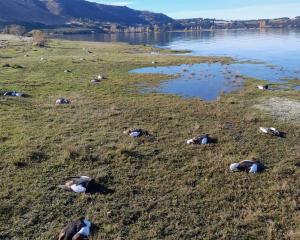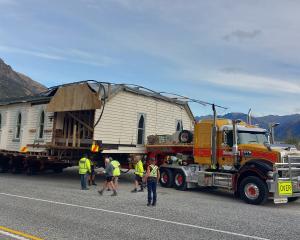
Claremont St residents say trees lining the street have been trimmed much more than usual and have subsequently been "butchered" by council contractors.
The council says the trees have been pruned using pollarding, a method that will make them more efficient to manage in future.
The Otago Daily Times was contacted by several residents on the street in Maori Hill who were unhappy about the pruning.
Warwick Johnson said he was leaving his home for a walk just over a week ago when he heard the sound of a wood chipper.
"The first we became aware of it was the loud crunching sound of the chipping machines.
"My wife and I stood and watched horrified as the trees got smaller and smaller and thought we need to find out what exactly the council were doing."
Within two or three days one side of the street had been extensively pruned, and one tree had been completely felled, Mr Johnson said.
"Every couple of years they are trimmed because there are power lines above them.
"I understand the necessity of it but this time around there’s been much more than normal . . . I do wonder what an experienced arborist would say.
"It’s one of the features of the streets; the trees lining it are what makes it one of Dunedin’s nicest . . . [the pruning] demonstrates a less than careful stewardship of city assets."
He contacted the council several times to ask why they had been pruned so heavily but had not received a response.
A Dunedin City Council spokeswoman said the trees had been pruned using a method known as pollarding.
"This is a common form of pruning and in this case the trees have been cut back to their original, first pollard point (called a knuckle).
"The height these trees have been pruned to will make them more efficient to manage in the future, which will lead to operational cost savings over time, but will also ensure they do not encroach on the overhead powerlines."
The council was intending to maintain an annual pruning schedule with the trees in the future, she said, the priority being the trees located underneath powerlines.
"Where possible, we will allow trees not at risk of interfering with electrical infrastructure to grow more naturally."












